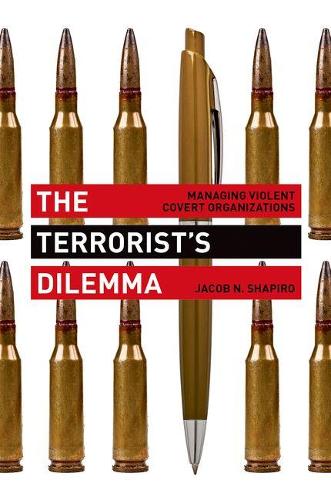
The Terrorist's Dilemma: Managing Violent Covert Organizations
(Hardback)
Available Formats
Publishing Details
The Terrorist's Dilemma: Managing Violent Covert Organizations
By (Author) Jacob N. Shapiro
Princeton University Press
Princeton University Press
15th October 2013
United States
Classifications
Tertiary Education
Non Fiction
303.625
Physical Properties
Hardback
352
Width 152mm, Height 235mm
595g
Description
How do terrorist groups control their members Do the tools groups use to monitor their operatives and enforce discipline create security vulnerabilities that governments can exploit The Terrorist's Dilemma is the first book to systematically examine the great variation in how terrorist groups are structured. Employing a broad range of agency theory, historical case studies, and terrorists' own internal documents, Jacob Shapiro provocatively discusses the core managerial challenges that terrorists face and illustrates how their political goals interact with the operational environment to push them to organize in particular ways. Shapiro provides a historically informed explanation for why some groups have little hierarchy, while others resemble miniature firms, complete with line charts and written disciplinary codes. Looking at groups in Africa, Asia, Europe, and North America, he highlights how consistent and widespread the terrorist's dilemma--balancing the desire to maintain control with the need for secrecy--has been since the 1880s. Through an analysis of more than a hundred terrorist autobiographies he shows how prevalent bureaucracy has been, and he utilizes a cache of internal documents from al-Qa'ida in Iraq to outline why this deadly group used so much paperwork to handle its people. Tracing the strategic interaction between terrorist leaders and their operatives, Shapiro closes with a series of comparative case studies, indicating that the differences in how groups in the same conflict approach their dilemmas are consistent with an agency theory perspective. The Terrorist's Dilemma demonstrates the management constraints inherent to terrorist groups and sheds light on specific organizational details that can be exploited to more efficiently combat terrorist activity.
Reviews
Jacob N. Shapiro, Winner of the 2016 Karl Deutsch Award, International Studies Association Winner, 2013 Edgar S. Furniss Book Award, Mershon Center for International Security Studies "In a unique study, Shapiro explores the management of such groups with considerable rigor, beginning with the nineteenth-century Russian progenitors of contemporary terrorist groups and ending with al Qaeda."--Foreign Affairs "Shapiro's book offers theoretical insight into the working of covert organizations that removes many cobwebs that cloud our understanding of the phenomenon."--Gayatri Chandrasekaran, Mint "Shapiro's topical historical overview, biographical profiles and case studies make for interesting reading... Shapiro's advice is penetrating."--Survival "Ultimately, the terrorist's dilemma that Shapiro is exploring is the divergence between the need for control and order and the equal need for opacity and security within a terrorist organisation. It is unlikely that any such organisation will ever be able to completely resolve this predicament, as by their very nature political movements seek to create parallel governance structures and therefore exactly the sort of managerial bureaucracy that Shapiro sees as their Achilles' heel. By laying out in such detail how this weakness can be exploited, Shapiro is undertaking a task that will likely stand the test of time."--Raffaello Pantucci, RUSI Journal "[T]he book is well worth the read for the persuasive case that Shapiro makes that policy makers, law-enforcement agents, academics, and the general public would benefit from a greater understanding of terrorist groups as organizations."--Anita M. McGahan, Administrative Science Quarterly "The Terrorist's Dilemma is one of the most important contributions made to terrorism studies in the past decade."--Barak Mendelsohn, Perspectives on Politics
Author Bio
Jacob N. Shapiro is assistant professor of politics and international affairs at Princeton University and codirects the Empirical Studies of Conflict Project.
